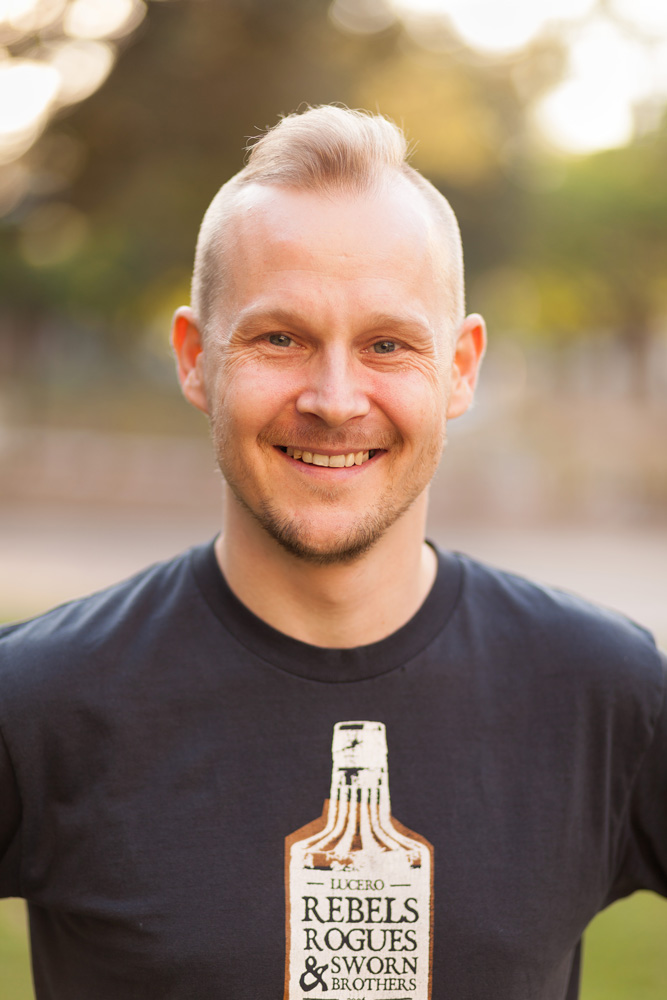
Johannes Pollanen
“I was not very good at physics right away in high school or even in college, but I did think it was really cool and I wanted to learn more and get better at it. The more I stuck with it, the more I realized how much I love figuring stuff out, and the excitement of that has never gone away. Now that I’m at the forefront of quantum physics, I get to answer questions and make advances that no one has done before. It’s a really satisfying feeling.”
Interview
What is your current research?
I work in Jim Eisenstein’s group, where we explore the properties of various kinds of low dimensional electronic matter — we help put the “M” in IQIM. The specific system I study is a two-dimensional sheet of electrons that lives in a layered semiconductor structure. Imagine a layer cake of various semiconducting materials (gallium arsenide and aluminum gallium arsenide), and in one of these layers electrons are trapped in 2-dimensions. We subject this system to temperatures very near absolute zero (about 10 millikelvin) and large magnetic fields (up to 16 Tesla), and under these conditions this 2-d electron sheet is a highly quantum system. That’s interesting from two different perspectives. On the quantum information side, there are potentially ways to manipulate the electrons to perform tasks for quantum computation that might be protected from some of the random noise that can come in from outside and cause decoherence. Another big part of what we want to do is to understand, from a fundamental physics perspective, what happens in a system like this, in which quantum mechanics is extremely important. You take a bunch of electrons and cool them to very low temperatures and subject them to strong magnetic fields — what do they do? The interactions between electrons become very important, and they can form new quantum mechanical states of matter, and those are the ones we want to understand.
What drew you to this work?
I was not very good at physics right away in high school or even in college, but I did think it was really cool and I wanted to learn more and get better at it. The more I stuck with it, the more I realized how much I love figuring stuff out, and the excitement of that has never gone away. Now that I’m at the forefront of quantum physics, I get to answer questions and make advances that no one has done before. It’s a really satisfying feeling. I also really enjoy the mix of day-to-day activities that go on in the lab. Designing experiments, running them, analyzing the data, presenting the results in papers and at conferences — every day is different, and I like that aspect. Working in the IQIM has also been really great because of the focus on quantum information as well as fundamental physics, so I’ve gotten a chance to grow in multiple directions.
What do you do when you’re not doing physics?
My hobby is middle and long-distance running. In grad school, I was really into the marathon distance, but as a post-doc I’ve been focusing on shorter distances– mostly 5K and 10K races– and I’ve started racing the mile on the track for the first time. It’s extremely different, and that actually makes it fun. I never realized until now how much strategy goes into it.